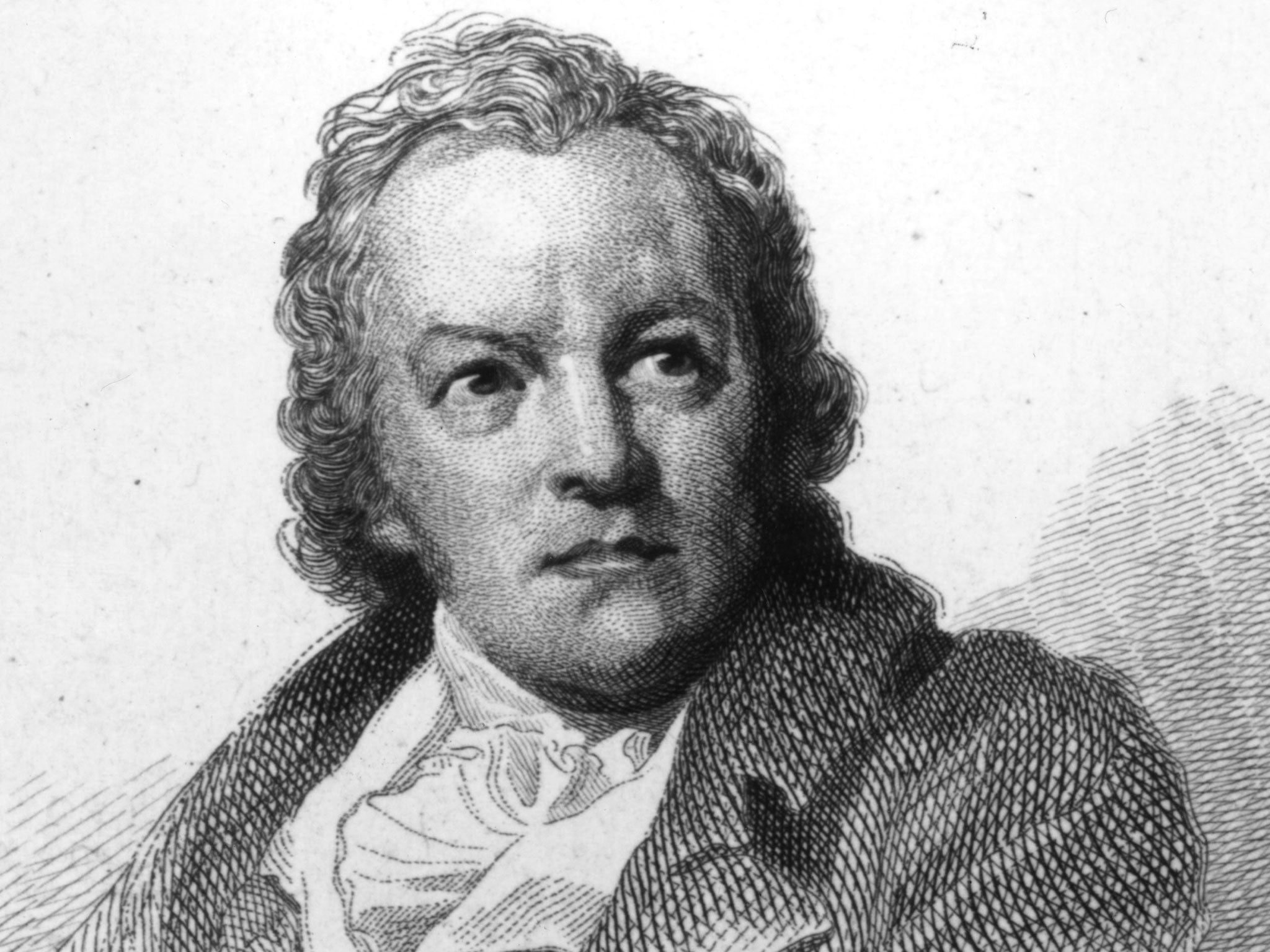School librarian puts the world straight on fake William Blake poem
Misattribution of verse started by students on internet is finally corrected by blogger

Your support helps us to tell the story
From reproductive rights to climate change to Big Tech, The Independent is on the ground when the story is developing. Whether it's investigating the financials of Elon Musk's pro-Trump PAC or producing our latest documentary, 'The A Word', which shines a light on the American women fighting for reproductive rights, we know how important it is to parse out the facts from the messaging.
At such a critical moment in US history, we need reporters on the ground. Your donation allows us to keep sending journalists to speak to both sides of the story.
The Independent is trusted by Americans across the entire political spectrum. And unlike many other quality news outlets, we choose not to lock Americans out of our reporting and analysis with paywalls. We believe quality journalism should be available to everyone, paid for by those who can afford it.
Your support makes all the difference.For years, thousands of children throughout the world have been studying a poem about sunflowers believing it to be the work of the 19th-century poet William Blake.
Reading lists have included it for study, websites have included it in lesson plans and four US state school boards have recommended it to students. There is even anecdotal evidence of one of Britain’s Ofsted inspectors accepting “the fact” of Blake’s authorship of the poem when it was presented to her by a group of young students via a project on their display board.
Now though, after a 12-year misunderstanding which illustrates how effectively the internet can spread misinformation, the record could finally be put straight thanks to the diligence of a Hertfordshire librarian and blogger.
Thomas Pitchford, aka “The Library Spider”, has verified that the poem – “Two Sunflowers Move into the Yellow Room” – was written by a 1980s US poet, Nancy Willard, and published in an anthology of hers dedicated to Blake’s work, A Visit to William Blake’s Inn.
Mr Pitchford, who was modestly refusing to answer any queries at his school, Hitchin School for Boys, wrote on his blog: “Teachers searching the internet for examples of poetry to use in their instruction are finding [the] poem. A great number of the suggested websites claim the poem was written by William Blake.”
The error, he says, began in 2001 on the website Think Quest set up by the Oracle Education Foundation and including a collection of online educational resources designed by students around the world.
A group of students were looking for poems for a project to post on the website and were searching for old poems which were not subject to copyright law – and thought the poems were actually written by William Blake.
“With this mistake now in public view on a site that specifically promotes itself to be visited by other school students and their teachers, one would think within a matter of days or at most months either a reader of Blake or of children’s books would have spotted the fault and called for its correction,” Mr Pitchford wrote on his blog.
“Instead, some people began linking to this page as a resource and a few others clearly copied the sources these children had gathered and presented them online as a lesson plan of their own creation. The misattribution began to spread,” he explained. In his own survey of primary schools in three UK counties, he discovered around one in four was using it as a poem attributed to Blake.
The Blake Society was also aware of the mistake, and has been trying to rectify the error. “I am not quite sure just how this confusion spread but it has grown considerably on [the] internet – which is to be expected unfortunately,” said its secretary Adriana Diaz-Enciso.
Mr Pitchford, though, is optimistic that his blog will help bring the saga to an end. “In less than 10 years a simple, rather innocent and easily fixable error has evolved into school policy and good practice simply due to the blind acceptance of quick and easy ‘research’,” he said. “Hopefully it will not take that long to repair.”
Join our commenting forum
Join thought-provoking conversations, follow other Independent readers and see their replies
Comments